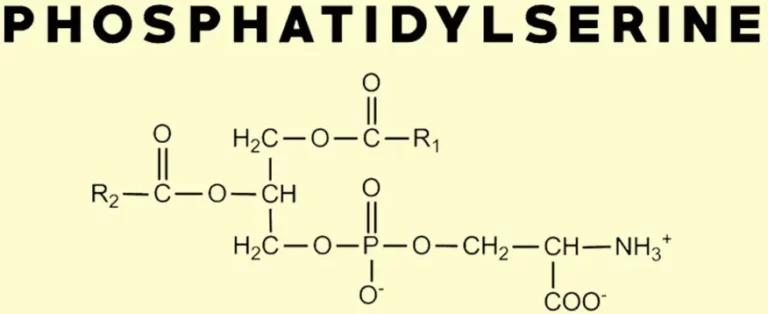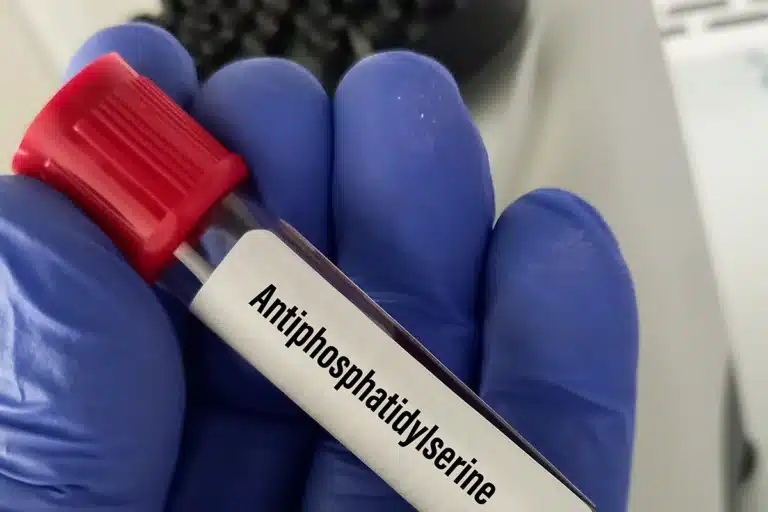If you’re looking for an edge, you may want to consider phosphatidylserine benefits as a nootropic. Phosphatidylserine is a naturally occurring phospholipid that can be found in the brain, heart, and liver. It plays an important role in cellular function, and has been shown to improve cognitive performance, memory, and attention span. Additionally, phosphatidylserine supplements have been shown to help protect the brain from age-related damage. If you’re interested in learning more about this supplement, keep reading!

Phosphatidylserine (PS) is a type of phospholipid that’s found in high concentrations in the brain. PS is a key component of cell membranes, and it’s involved in a variety of cellular activities. PS supplements are sometimes touted as “brain boosters” or “memory enhancers.” Here’s a look at the science behind these claims.
PS is involved in several important brain functions, including neurotransmission, cell signaling, and membrane fluidity. PS levels in the brain decline with age, which may contribute to age-related cognitive decline.
Research on PS supplements and cognitive function in healthy adults is mixed. Some studies have found benefits, while others have not. A large review of clinical trials concluded that PS supplements improved memory and thinking skills in people with age-related cognitive decline. However, it’s important to keep in mind that most of the studies included in this review were small and funded by the supplement industry.
Another review looked at the effects of PS on attention deficit hyperactivity disorder (ADHD) symptoms in children and adolescents. The authors concluded that there’s some evidence to suggest that PS may improve ADHD symptoms, but more research is needed.

PS supplements are sometimes promoted for Alzheimer’s disease, but there’s little scientific evidence to support this use. A small study found that PS improved symptoms of Alzheimer’s disease, but larger studies are needed to confirm these findings.
Phosphatidylserine (PS) is a type of phospholipid that’s found in high concentrations in the brain. PS is involved in several important brain functions, including neurotransmission, cell signaling, and membrane fluidity. PS levels in the brain decline with age, which may contribute to age-related cognitive decline.
Research on Phosphatidylserine benefits as supplements and cognitive function in healthy adults is mixed. Some studies have found Phosphatidylserine benefits, while others have not. A large review of clinical trials concluded that Phosphatidylserine benefits included improved memory and thinking skills in people with age-related cognitive decline. However, it’s important to keep in mind that most of the studies included in this review were small and funded by the supplement industry. Another review looked at the effects of Phosphatidylserine benefits on attention deficit hyperactivity disorder (ADHD) symptoms in children and adolescents. The authors concluded that there’s some evidence to suggest that PS may improve ADHD symptoms, but more research is needed.
Phosphatidylserine benefits as a supplement are sometimes promoted for Alzheimer’s disease, but there’s little scientific evidence to support this use. A small study found that PS improved symptoms of Alzheimer’s disease, but larger studies are needed to confirm these findings. More research is needed to determine whether PS supplements offer any benefits for healthy adults or children with ADHD.
Looking for a way to boost your brain power? You might want to consider adding phosphatidylserine foods to your diet. Phosphatidylserine is a type of phospholipid that’s found in all cells in the human body, but it’s especially concentrated in the brain. This essential nutrient plays a vital role in cognitive function, and research has shown that getting enough phosphatidylserine can help improve memory, focus, and learning.
There are many Phosphatidylserine benefits supplements on the market, but you can also get this important nutrient by eating certain foods. Here are some of the best sources for Phosphatidylserine benefits:
If you’re looking for a way to boost your brain power, adding more phosphatidylserine foods to your diet is a smart move. Fish, eggs, soybeans and soy products, nuts and seeds, and beans are all good sources of this essential nutrient. Including these foods in your diet can help improve memory, focus, and learning.
Phosphatidylserine is a type of phospholipid that is found in high concentrations in the brain. It plays an important role in cell membranes, and it is involved in a variety of cellular processes. Phosphatidylserine has been studied for its potential cognitive benefits, and it is sometimes taken as a dietary supplement. However, there are some potential side effects to be aware of. In this blog post, we will take a look at the benefits and risks of phosphatidylserine supplementation.
Phosphatidylserine benefits is thought to play a role in cognitive function and memory. It has been shown to improve symptoms of Alzheimer’s disease, dementia, and age-related cognitive decline. Phosphatidylserine benefits as a supplement have also been shown to improve symptoms of attention deficit hyperactivity disorder (ADHD).
In addition to cognitive benefits, Phosphatidylserine benefits as a supplement have also been shown to improve exercise performance. One study showed that phosphatidylserine supplementation improved running performance in competitive runners. Another study showed that phosphatidylserine supplementation improved strength and power output in resistance-trained men.

The most common side effect of phosphatidylserine supplementation is gastrointestinal distress, such as nausea, diarrhea, and abdominal pain. Other potential side effects include headache, insomnia, anxiety, and depression.
It is also important to note that most of the research on the cognitive benefits of phosphatidylserine has been conducted on elderly adults with age-related cognitive decline. There is limited research on healthy adults without cognitive impairment. Therefore, it is not clear whether healthy adults would experience any cognitive benefits from phosphatidylserine supplementation.
Phosphatidylserine benefits as a supplement have been shown to offer some potential benefits, including improved cognitive function, memory, exercise performance, and symptoms of Alzheimer’s disease, dementia, ADHD, and age-related cognitive decline. However, there are also some potential risks associated with phosphatidylserine supplementation, such as gastrointestinal distress, headache, insomnia, anxiety, and depression. Most of the research on the cognitive benefits of phosphatidylserine has been conducted on elderly adults with age-related cognitive decline; more research is needed to determine whether healthy adults without cognitive impairment would experience any benefits from phosphatidylserine supplementation.
Phosphatidylserine is a type of phospholipid that is found in high concentrations in the brain. Phospholipids are a major component of all cell membranes, including those in the brain. This substance is involved in a variety of cellular functions, including cell signaling, cell adhesion, and cell membrane fluidity. Phosphatidylserine benefits also play a role in the metabolism of fats and carbohydrates.
This substance is found naturally in the body, but it can also be taken as a supplement. Phosphatidylserine supplements are usually made from soybeans or cabbage. The recommended dosage depends on the person’s age, health, and other factors. Iso Brain contains 74 mg.
Phosphatidylserine has many potential health benefits, including improved cognitive function, reduced inflammation, and better exercise performance.
One of the most well-known benefits of phosphatidylserine is its ability to improve cognitive function. This substance has been shown to improve memory, attention span, and mental clarity. It may also help reduce age-related cognitive decline.
Phosphatidylserine may also help reduce inflammation. This substance helps to regulate the activity of certain immune cells that are involved in inflammation. In one study, people with inflammatory bowel disease who took phosphatidylserine supplements had reduced levels of inflammation markers in their blood.
This substance may also help improve exercise performance. One study found that people who took phosphatidylserine supplements before exercising had less muscle soreness afterward than those who did not take supplements. Phosphatidylserine may help to reduce exercise-induced oxidative stress and inflammation.
Phosphatidylserine is a type of phospholipid that is found in high concentrations in the brain. This substance is involved in a variety of cellular functions and has many potential health benefits. Phosphatidylserine supplements are usually made from soybeans or cabbage and the recommended dosage depends on the person’s age, health, and other factors. Some of the potential health benefits of this substance include improved cognitive function, reduced inflammation, and better exercise performance.
Phosphatidylserine (PS) is a phospholipid that is found in all cells, but is most concentrated in the brain. PS supplements are derived from soybeans or cabbage and are often used to improve cognitive function and memory. In this blog post, we’ll dive deeper into the benefits of PS supplements and how they can improve your overall health.
Phosphatidylserine benefits as a supplement are known to improve cognitive function and memory, but did you know that they can also help with other health conditions? Studies have shown that PS supplements can help with depression, ADHD, anxiety, and even Alzheimer’s disease. PS supplements work by providing the body with the building blocks it needs to repair and regenerate cells. This helps to protect the brain against age-related damage and disease.
Phosphatidylserine benefits as a supplement are also known to improve heart health. One study showed that people who took a PS supplement had lower levels of LDL cholesterol and triglycerides. They also had higher levels of HDL cholesterol, which is the “good” kind of cholesterol that helps to keep your heart healthy. PS supplements can also help to lower blood pressure and reduce inflammation throughout the body. All of these factors together can help to reduce your risk of heart disease.
Phosphatidylserine benefits as a supplement offer a wide range of benefits that can improve your overall health. If you’re looking for a way to improve your cognitive function, memory, and heart health, then consider adding a PS supplement to your daily routine.
† These statements have not been evaluated by the FDA. This product is not intended to diagnose, treat, cure, or prevent any disease.